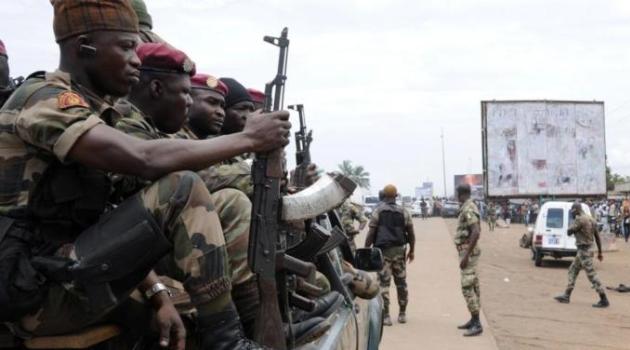BANGOLO, June 19- As Ivory Coast strives to put more than a decade of bloody conflict behind it, courts in the agrarian west African nation are overwhelmed by quarrels over land ownership.
“We are assailed with complaints every day,” an administrator in the western city of Bangolo, Mahama Gbane, told AFP.
Rooted in unclear or contradictory legislation, shifting demographics and the legacy of conflict, the disputes are especially intractable in the volatile west, which suffered the worst atrocities of the 2000-11 conflict.
In the two decades after independence from France in 1960, Ivory Coast enjoyed a boom in cocoa cultivation, becoming the world’s leading producer.
The powderkeg west saw massive influxes of people from other parts of the country and neighbouring Burkina Faso and Mali, mainly to work on cocoa plantations.
“My life is here. No question of leaving!” said Adama Dembele, who heads a community of northerners who settled in the west generations ago but many of whom now face expulsion as indigenous people claim their land.
“I invested everything here. … I only know Duekoue,” the western town where Dembele said he was born in 1945.
In Ivorian tradition, land belonged to ancestors, not the living — “who enjoyed the right of use,” an expert on the issue told AFP. “There was also a ‘land chief’ who handled the allocation of terrain.”
As a result, people who stake a longstanding ownership claim to land on the basis of decisions made by the traditional chiefs may face challenges by Ivorians from other regions and sometimes foreigners.
During French colonial times, the state claimed ownership of all the land, and it retained that control after independence in 1960.
In 1998, new legislation opened the way to private land ownership, which had hitherto been the privilege of a tiny minority.
By then, independent Ivory Coast’s population had quadrupled, to 16 million; today it is some 23 million.
In 2000, the country was cut in half when a rebellion backing the current president, Alassane Outtara, took control of the north, while the south stayed in the hands of former president Laurent Gbagbo.
– Makeshift titles –
People in the west, fleeing exactions, abandoned land and property to take refuge in the southern economic capital Abidjan or in neighbouring Liberia.
When they came home they found their land had been appropriated by relative newcomers.
“The massive displacement in western Côte d’Ivoire caused by the post-election crisis (in 2010-11) ushered in chaos around land rights and acquisition,” Human Rights Watch wrote in an October 2013 report.
“Deep inter-communal tensions linked to land were one factor in why western Côte d’Ivoire played host to many of the worst atrocities,” HRW said.
Andre Guei Flan, a retired civil servant who has become a traditional chief, said the indigenous people have their share of responsibility for the situation.
“Poverty has come with the crisis. Young people with no education fend for themselves. So when you offer them a little money for a plot of land they make deals,” he said.
The makeshift land titles, with no legal status whatsoever, generate numerous conflicts.
Aladari Yao, a Burkinabe who came to Beoue, a town near Bangolo, nearly two years ago, paid 170,000 CFA francs ($350) to a resident for a section of forest that, as he learned later to his cost, was already under cultivation by a purported owner.
The 1998 law gave farmers 10 years to register their land — a deadline that was extended another 10 years last August given the feeble response.
Currently hardly 20,000 hectares (nearly 50,000 acres) out of an estimated 23 million are registered — some 0.09 percent — even though the stakes are no less than “peace and social cohesion”, Agriculture Minister Mamadou Sangafowa Coulibaly remarked last October.
Even so, the state has no budget for resolving the property conundrum, a ministry employee lamented.



































